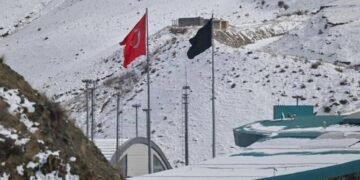By Ghulam Haider
It is very common that even siblings or a father and a son or a husband and his wife within the confines of a house can have a difference of opinion over any issue or they might have divergent political views or associations or affiliation.
This divergence in views assumes more value in democracy where having and expressing contrasting points of view without any restrains and compulsions is considered to the sign of a healthy and constructive society.
But, it is unfortunate that the toxic phenomenon of intolerant culture and hostilities among the leaders, voters, supporters and workers has cut across traditional political party divides in Pakistan. This situation has created a hostile environment rather than terming it as frustrating or intimidating one in the softer terms. The repercussions of the hate-mongering attitude among opposing political party workers and leaders have been obvious, which disrupts and destroys the civilized domain of the intellect.
It is a fact that Pakistan’s political leaders spend more time vilifying opponents other than conveying what they stand for and how they propose to address the country’s challenges. Those in power seem to equate government performance with humiliating rivals while opposition leaders return the compliment by using equally offensive language. This has become habit forming. The result is that an unedifying new normal has been established.
The lack of distinct party platforms has in fact fostered a phase of issueless politics and personalised power struggles as there has never been a debate on ideas or policy alternatives among the party ranks. This makes the resort to shallow and provocative rhetoric an easy option and becomes the political weapon of choice.
Such an antagonistic environs have pushed the personal liking and disliking at the back burner in Pakistan where people are not afraid of even resorting to extremism, fanaticism or radicalization or putting their own lives at risk for their individual or party favourites in politics.
And indeed it is experienced as such by large swaths of the population, where the animosity and intolerance towards both politicians and fellow voters have reached an alarming levels in the country. Quite recently, an incident happened couple of weeks back when a coaster was made to wait as the supporters of Pakistan Tehrik-e-Insaf (PTI) had blocked the near a Toll Plaza on the outskirts of Peshawar. The coaster remained jammed for one and half hours when one of the frustrated occupants of the vehicle started using offensive language against the protesters while sitting in the vehicle.
Meanwhile, some other occupants of the vehicles intervened and started exchanging hot words with the passenger who abused the protesting PTI supporters. The coaster was destined to Taimer Garha in Lower Dir from Peshawar. The heated political debate took a nasty turn as one of the occupants of the vehicle opened fire, resulting in on-the-spot the killing of the arguing passenger and severe injuries to another.
While road blockades are very common scenes during protests and procession in Pakistan, which badly affect the civil life including moment of motorists, pedestrians and civilians alike. However, such situations invite public reactions, which sometimes take an ugly turn like exchange of hot words or clashes. But the killing of an individual over a petty issue has compelled the political commentators to revisit the need for community building and cohesion across political ideologies and divides.
Waqas, who was injured in the incident, said that he and his brother were indulged in the heated debate with the passenger who used abusive language. “Our vehicles was made to stop for one and half hours when one of the passengers started hurling abuses at the protesters. My brother asked him to mind his language as females were also travelling in the vehicle,” Waqas said, adding that he said he was using offensive language against the protesting PTI workers and had nothing to do with the vehicle occupants.
He further told that he continued to abuse and meanwhile told someone from his mobile phone “to reach the spot as our vehicle was arriving.” “When we reached near the city, five-seven armed men reached, they intercepted the coaster and started beating me and my brother,” Waqas said, adding that one of them whipped his pistol and opened fire at my brother who breathed his last on the spot.
Waqas told that his brother had been working in Saudi Arabia, and had planned to go back to the Kingdom in a couple of days. The police have registered the case and are investigating.
Such violent protests are aggravating the already fragile, rather inching towards being declared hostile political atmosphere in the country, forgetting that tolerance co-existence in diversity is a great democratic ideal.
“The people are facing severe economic problems, rather than political ones. Everyone is worried about generating finances to run the household,” says Prof. Irum Irshad, Chairperson of the Department of Psychology at Peshawar University. “In such a situation when protests and resultant road blockades become a norm, then we should be expecting such violence,” she commented.
It is a fact that such events affect the daily routine as well as the domestic affairs of the people, which make them hyper in their daily matters. Media is another major factor in highlighting these protests in the prime time and repeat transmissions, which leads to incitement among the peoples and party workers.
While social media adds fuel to the fire as it spreads the information, true or false, within no time. It has the power to construct an electrifying narrative that may not necessarily be true. In fact, we are constantly exposed to different opinions and perspectives.
“The people are facing an uncertain scenario in the country and the these (events) are the reflection of the psychology of the people. Further, the political leaders never educate inculcate the golden principal of tolerance, patience and forbearance for the opposing views,” Prof. Irum says.
In past, people did not have such a quick access to the information, but the mobile phones have made it seamless access to information. With the passage of time, instead of believing in tradition, the people have been resorting to fanaticism in their behaviours and attitudes, which is highly precariously hazardous for the society in entirety. It is very unfortunate that we are becoming more of fanatics instead of marching towards becoming a civil society believing in peaceful co-existence.
Opposing political parties workers are seen using offensive language against each other outside the London residence of former prime minister and PML-N supremo Nawaz Sharif. Protest can be managed in more than one civilian ways, but even the educated party leaders and workers are seen stooping low.
The political parties seem to be miserably failing in preparing the workers who promote peace and tranquility despite divergent political affiliation. “When discussions around politics move from being framed as differences in political opinions, to differences in personality, we begin to see a hardening of group boundaries and emerging identities,” says Prof. Irum.
Almost the entire political leadership of the country is thriving on a wave of populism. But unfortunately, most of the political parties have been found trading blames regarding proliferation of such a disharmony and hostility in the ranks and file of their workers.
With increasing polarisation emerging across diverse socio-political contexts, it is incumbent upon the political leaders to educate their voters and supporters to becoming tolerant and understanding political views of those who think differently and how this understanding may soften group boundaries. With polarisation among populations, it is now more important than ever to understand how and why we engage with others’ opinions to mitigate the growing political intolerance in the society.
It is a fact that intolerance has proliferated among the top political leaders of varying political parties in the country, which surely has been the source of ‘inspiration’ for other people to become intolerant. This process is just a cyclic mechanism. To bring change, is it necessary to play hate politics? Why can’t change take place in a civilized manner?
Our society seems to have lost the patience that allows another person’s opinion to differ. Everyone wants to be politically correct while assuming others are not knowledgeable enough. Because of the leaders whom the workers listen to and the mainstream and social media shows, the society is at the verge of an explosion: an explosion that will destroy all the moral and ethical values of the Pakistani society.


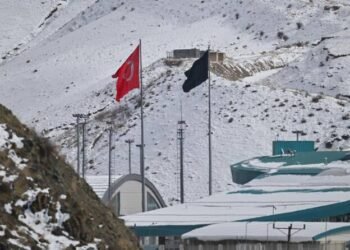



 United Arab Emirates Dirham Exchange Rate
United Arab Emirates Dirham Exchange Rate